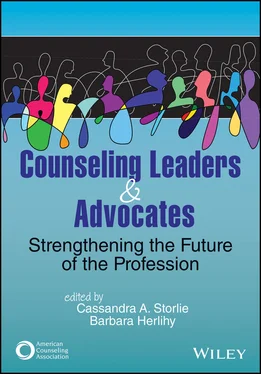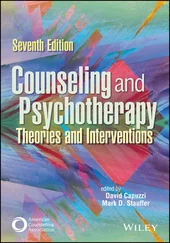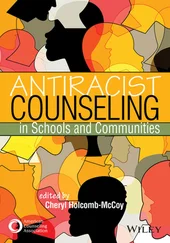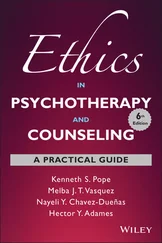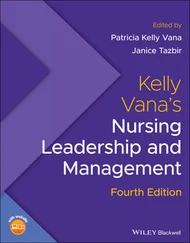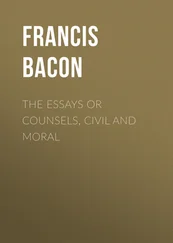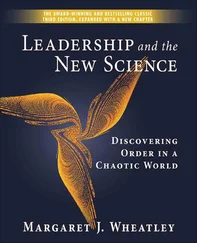Counseling Leaders and Advocates
Здесь есть возможность читать онлайн «Counseling Leaders and Advocates» — ознакомительный отрывок электронной книги совершенно бесплатно, а после прочтения отрывка купить полную версию. В некоторых случаях можно слушать аудио, скачать через торрент в формате fb2 и присутствует краткое содержание. Жанр: unrecognised, на английском языке. Описание произведения, (предисловие) а так же отзывы посетителей доступны на портале библиотеки ЛибКат.
- Название:Counseling Leaders and Advocates
- Автор:
- Жанр:
- Год:неизвестен
- ISBN:нет данных
- Рейтинг книги:5 / 5. Голосов: 1
-
Избранное:Добавить в избранное
- Отзывы:
-
Ваша оценка:
- 100
- 1
- 2
- 3
- 4
- 5
Counseling Leaders and Advocates: краткое содержание, описание и аннотация
Предлагаем к чтению аннотацию, описание, краткое содержание или предисловие (зависит от того, что написал сам автор книги «Counseling Leaders and Advocates»). Если вы не нашли необходимую информацию о книге — напишите в комментариях, мы постараемся отыскать её.
Counseling Leaders and Advocates — читать онлайн ознакомительный отрывок
Ниже представлен текст книги, разбитый по страницам. Система сохранения места последней прочитанной страницы, позволяет с удобством читать онлайн бесплатно книгу «Counseling Leaders and Advocates», без необходимости каждый раз заново искать на чём Вы остановились. Поставьте закладку, и сможете в любой момент перейти на страницу, на которой закончили чтение.
Интервал:
Закладка:
Advocacy and Social Justice in Counseling
Advocacy in counseling customarily has been connected with empowerment and action that professional counselors take on behalf of clients (Newsome & Gladding, 2014). Between the inception of the MCC and the appearance of the Multicultural and Social Justice Counseling Competencies (MSJCC), a series of ACA presidents, particularly Jane Goodman, formed initiatives to substantiate the role of advocacy in the counseling profession. These initiatives centered on explicating that advocacy has a dual purpose of client advocacy and professional advocacy (Myers & Sweeney, 2004; Myers et al., 2002). Client and professional advocacy are not competing forces; rather, they are both critical components in the preparation of effective professional counselors (Farrell & Barrio Minton, 2019; Myers et al., 2002; Storlie et al., 2019).
Goodman created a task force with the specific purpose of formulating the ACA Advocacy Competencies (Lewis et al., 2003). Endorsed by the ACA Governing Council, the ACA Advocacy Competencies introduced professional counselors to an advocacy continuum (micro- to macrolevel) that included multiple domains in which counselors could act with or act on behalf of clients, students, schools, communities, and the greater public. The ACA Advocacy Competencies have been an exemplar in the promotion of systemic change (Toporek et al., 2009), advocacy with clients and students (Ratts & Hutchins, 2009), school counseling (Haskins & Singh, 2016; Ratts et al., 2007), and community collaboration (Lopez-Baez & Paylo, 2009). It is also well understood that “many situations call for multiple forms of advocacy concurrently” (Lewis et al., 2011, p. 9).
Critical to the expansion of advocacy initiatives, social justice was prioritized and became an elucidating force, enveloping the multiple levels where systemic marginalization existed. The act of advocating became the route to social justice (Fickling & Gonzalez, 2016) because advocacy was (and is) a means of pursuing equity and justice for clients and students. As social justice began to be described as the fifth force in the counseling profession (Lee, 2012; Ratts, 2009), additional systemic and contextual factors influencing client and student wellness were recognized, especially among historically marginalized clients and students (Ratts & Greenleaf, 2018; Ratts et al., 2016). Counseling leaders engaged in political, legislative, and community advocacy and acknowledged this advocacy as a key responsibility of professional counselors. These distinct responsibilities for professional counselors are documented in the ACA Code of Ethics (ACA, 2014) with explicit language that counselors do not condone discrimination or any of its forms (Standard 5.c.). It is important to note, however, that “not condone” does not mean the same as “advocate.”
Counselors for Social Justice (CSJ) was formed in 1994 to reinforce the counseling profession’s commitment to multiculturalism and advocacy (Anderson et al., 2015). In particular, CSJ’s early developmental stages signified a movement to work in tandem with AMCD, the Association for Specialists in Group Work (ASGW), and the National Career Development Association (NCDA) to remove social conditions and barriers affecting clients’ and students’ life span development for optimal wellness. Professional associations, such as AMCD and CSJ, upheld overarching values attached to the distinct movements of multiculturalism and social justice. The scope of their organizations and their ensuing accomplishments serve as a call to action for all professional counselors to embody these values, roles, and functions as a lifelong career commitment (Ratts et al., 2016). As leaders and advocates fully immerse in the histories of professional associations, governance, and leadership, it is critical to remember that culturally responsive counseling leadership is not a one-time incident, a response to a crisis or urgent gap, or the sole responsibility of a single group. The development of cultural awareness and responsiveness is an ongoing process over a career and should be a priority for every counseling leader, advocate, and professional.
MSJCC
With the advent of the seventh iteration of the ACA Code of Ethics (ACA, 2014) and the 20/20 definition of professional counseling (Kaplan et al., 2014), AMCD leaders commissioned a task force to update the MCC. Given the history of the MCC, it was important to highlight the philosophical underpinnings of the original document and expand it to fit more current research and scholarship on multi culturalism and social justice (Ratts et al., 2016). Consistent with culturally responsive counseling practices, AMCD leaders and the commission task force noted the importance of drawing from lineage, ancestry, and generational wealth to reflect the values, expertise, and foundation instilled from past leaders (Singh, Nassar, et al., 2020). To fit more cohesively with the introduction of the fifth force of counseling as social justice (Ratts & Pedersen, 2014), the MCC transformed into the MSJCC to accurately reflect a more action-oriented set of values for practice and solidarity with historically marginalized communities. The MSJCC moved beyond a predominant focus on multicultural communication strategies, intercultural dialogue, and cross-cultural skills to a global enterprise predicated on action, systemic change, and advocacy (Fickling et al., 2019; Ratts et al., 2016).
The model of the MSJCC intentionally connected to the MCC (Sue et al., 1992) and the ACA Advocacy Competencies (Lewis et al., 2003; Toporek & Daniels, 2018), and the newly minted MSJCC added multiple aspects to broaden the application of social justice to reinforce its priority for training and practice within professional counseling. The MSJCC incorporated philosophical underpinnings of intersectionality theory to properly reflect the simultaneous coexistence of privilege and oppression and the multiplicity of dimensions beyond race and ethnicity, including sexual identity, affection, ability status, spirituality, social class, and gender identity (Chan et al., 2018; Ratts et al., 2016; Singh, Appling, & Trepal, 2020). Annexing intersectionality theory to the MSJCC served as a response to critics claiming that multiculturalism was predicated solely on race and ethnicity. The underlying characteristics that define intersectionality are power and social context (Collins, 2015; Collins & Bilge, 2020), and counselors need to consider each context and relationship (e.g., counselor and client) as a reflection of power relations. The MSJCC also explicitly infused action as a domain within the previous tripartite model of attitudes and beliefs, knowledge, and skills. Hence, the MSJCC reinforced the development of multicultural competence, social justice in counseling, and culturally responsive practices as a lifelong commitment rather than a status to achieve or a checklist to complete (Ratts et al., 2016).
Moving Toward Culturally Responsive Counseling Leadership and Advocacy
Consistent with a proliferation of scholarship about leadership and advocacy, multiculturalism, advocacy, and social justice have become intertwined as the counseling profession has evolved (Lee, 2012; Ratts, 2011). Incorporating multiculturalism and social justice can occur at multiple systemic levels of leadership (Cashwell & Barrio Minton, 2012; Chan et al., 2018, 2019; Storlie, 2016; Storlie & Jach, 2012). As an explicit example, Cashwell and Barrio Minton (2012) identified myriad ways for administrators and leaders to meet their responsibility for institutionalizing multiculturalism and social justice into the culture and operations of academic units (e.g., departments). Other counseling leaders (Chan et al., 2018; Day-Vines et al., 2018; Remley & Herlihy, 2020; Singh, Appling, & Trepal, 2020; Singh, Nassar, et al., 2020) highlighted the importance of establishing multiculturalism, advocacy, and social justice as intuitive priorities across the counselor education curriculum, which would ultimately become a cultural norm rather than an isolated specialty. The Council for Accreditation of Counseling and Related Educational Programs (CACREP) 2016 Standards (CACREP, 2015) address social and cultural foundations as a core area, and the ACA Code of Ethics (ACA, 2014) further outlines multicultural competence as an ethical obligation for counseling practitioners, supervisors, and counselor educators.
Читать дальшеИнтервал:
Закладка:
Похожие книги на «Counseling Leaders and Advocates»
Представляем Вашему вниманию похожие книги на «Counseling Leaders and Advocates» списком для выбора. Мы отобрали схожую по названию и смыслу литературу в надежде предоставить читателям больше вариантов отыскать новые, интересные, ещё непрочитанные произведения.
Обсуждение, отзывы о книге «Counseling Leaders and Advocates» и просто собственные мнения читателей. Оставьте ваши комментарии, напишите, что Вы думаете о произведении, его смысле или главных героях. Укажите что конкретно понравилось, а что нет, и почему Вы так считаете.
